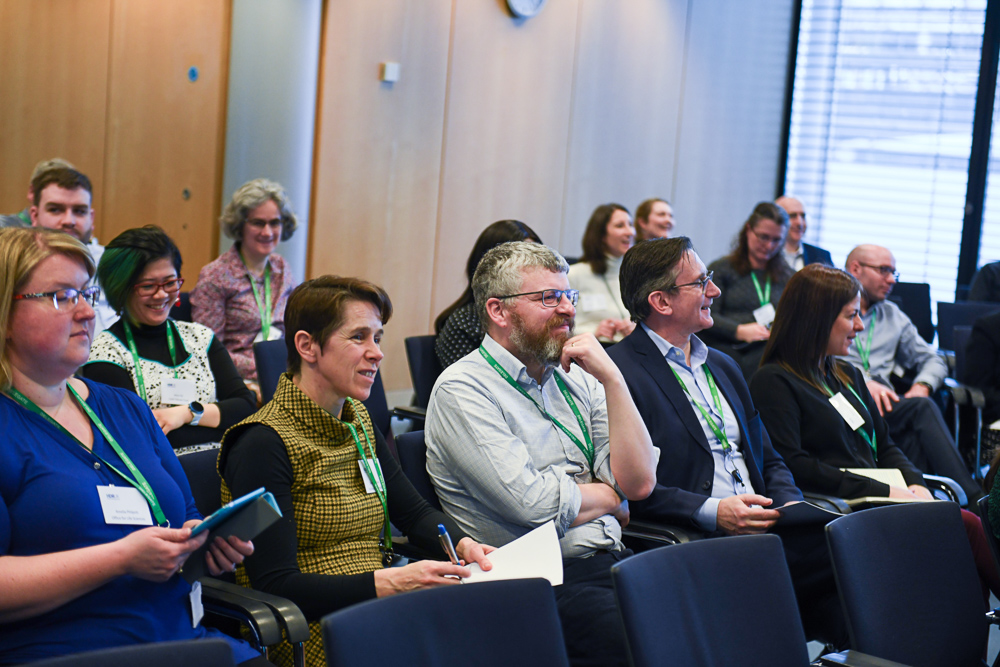Does vitamin D protect against COVID-19?
25 November 2020 | Author: Claire Hastie, Data scientist in Public Health
There have been several stories in the news suggesting a link between vitamin D levels and susceptibility to COVID-19. So should we all be taking vitamin D supplements to protect ourselves? We talked to Dr Claire Hastie at the University of Glasgow to find out more.
In June, a study from Indonesia found that nearly 99% of patients who die from COVID-19 have low levels of vitamin D, sparking scare-mongering headlines warning that people with a vitamin D deficiency are ‘almost certain to die’.
The paper has since been discredited and withdrawn by the authors, but further research studies have also suggested a link between vitamin D and COVID-19 risk, leading to speculation that taking vitamin D supplements may help protect against the disease.
However, most of this research has overlooked some important confounding factors, says Health Data Research UK-supported researcher Dr Claire Hastie at the University of Glasgow, who has been investigating whether there is a connection between vitamin D and COVID-19.
“While these studies make headlines, they often fail to account for factors that increase the risk of having low vitamin D levels and increase the risk from the virus but aren’t necessarily linked,” she points out.
Cause or consequence?
We now know from various studies that people from black and other ethnic minority backgrounds are at increased risk from COVID-19 compared to other groups. People in these groups tend to have darker skin, which reduces the amount of vitamin D produced through exposure to ultraviolet light from the sun.
“While people from these ethnic groups may be at increased risk from COVID-19 and also tend to have lower levels of vitamin D, this doesn’t necessarily mean the two are related,” Claire explains. Similarly, people who are overweight tend to have lower levels of vitamin D and are also at greater risk from COVID-19. But this observation doesn’t prove it’s their vitamin D levels that are responsible.
“If studies fail to account for these confounding factors, they may see an association between vitamin D levels and COVID risk that isn’t really there,” she says.
Claire and her collaborators at the University of Glasgow decided to look more closely at the apparent link between vitamin D and COVID-19.
They used data from the UK Biobank – an extensive study of around half a million people who underwent various tests between 2006 and 2010. The UK Biobank dataset contains a wealth of information about these individuals, including measurements of their baseline vitamin D levels when they first joined the study.
Because the participants in the study gave permission for their data to be linked to other data sets for research purposes, Claire and her team mapped these vitamin D measurements onto COVID-19 testing data and death statistics from Public Health England.
“When we just looked at the association between vitamin D, COVID-19 infection and the risk of dying from the disease without adjusting for any other factors, we did find that lower vitamin D was associated with greater COVID risk,” she says.
“However, once we adjusted for confounding variables that are associated with higher COVID risk, but also with lower vitamin D levels, such as ethnicity, socioeconomic deprivation and body mass index, this association disappeared.”
Their analysis, published in the European Journal of Nutrition in August, also found that differences in vitamin D levels did not explain the differences in COVID-19 risk between ethnic groups, suggesting that other factors are at work.
Limitations and recommendations
There are some limitations of using vitamin D levels from 10 years ago, but follow-up studies on the UK Biobank volunteers have shown that vitamin D levels don’t tend to change drastically over time.
Furthermore, it can be misleading to look at vitamin D levels once a virus such as COVID-19 has taken hold. Many people who are seriously ill have low vitamin D levels, but this may be a consequence of the body’s response to illness rather than an underlying cause.
Overall, Claire and her team concluded that there is insufficient evidence to support a link between vitamin D and COVID-19, and a recent review of the available scientific research agrees.
The only way to know for sure whether vitamin D supplementation alters COVID-19 risk, or can provide a potential treatment for the virus, is to conduct a large-scale randomised clinical trial, and there are several currently in development.
But while there’s no evidence to show that vitamin D supplementation can help protect against COVID-19, it may be beneficial for your overall health. When it comes to vitamin D supplements, Claire recommends following the current NHS guidelines.
“It’s already recommended that the whole UK population should take vitamin D supplements in the winter, because we don’t have sufficient sunshine in winter for most of us to generate enough vitamin D. Certain groups of people should also be taking vitamin D supplements all year round, including people with darker skin, pregnant women and young children, and those who cover up or rarely go outdoors,” she says.
“Vitamin D supplementation is a very low-risk intervention that is unlikely to do you any harm as long as you are following the guidelines and sticking to 10 micrograms per day, as taking too much vitamin D can be harmful to your health. But you should not be under any false reassurances that it will protect you from COVID-19.”
Read more
- Vitamin D: A rapid review of the evidence for treatment or prevention in COVID-19 – Centre for Evidence-based Medicine
- Vitamin D and COVID-19 infection and mortality in UK Biobank – European Journal of Nutrition
- Vitamin D concentrations and COVID-19 infection in UK Biobank – Diabetes & Metabolic Syndrome: Clinical Research & Review
- Trials Seek to Answer if Vitamin D Could Help in COVID-19 – The Scientist



